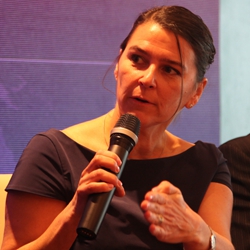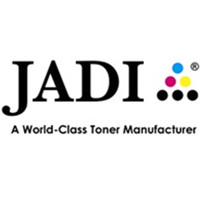How Managed Print Services Accelerates Business Process Digitisation
 Organisations remain reliant on printing. Quocirca’s research reveals that overall, 30% of organisations view printing as critical to their business processes – this rises to 73% for financial services, followed by 41% for the public sector. Given the financial and environmental implications of a continued dependence on printing – not to mention the inherent inefficiencies with paper-based processes – 72% of organisations indicated that they are planning to increase their digitisation efforts, and many are using their MPS providers to support this transition.
Organisations remain reliant on printing. Quocirca’s research reveals that overall, 30% of organisations view printing as critical to their business processes – this rises to 73% for financial services, followed by 41% for the public sector. Given the financial and environmental implications of a continued dependence on printing – not to mention the inherent inefficiencies with paper-based processes – 72% of organisations indicated that they are planning to increase their digitisation efforts, and many are using their MPS providers to support this transition.
Today, MPS has moved beyond the realms of hardware consolidation to encompass a much broader strategy to drive business efficiency around paper-dependent processes. With cost remaining a top driver for most MPS engagements, many MPS customers are seeing significant cost reductions not only through a rationalised printer fleet, but also through the implementation of solutions that reduce or eliminate wasteful printing and better integrate document workflows.
Certainly, MPS is proving an effective approach to the digitisation of business processes. At a foundation level, this could be through harnessing the sophistication of today’s advanced multifunction peripherals (MFPs) which enable documents to be scanned and routed directly to applications (think expense reporting or HR applications), minimising the need for multiple hard copies.
Beyond this, many leading MPS providers offer a range of business process services (BPS) as an extension of their MPS offerings. These services are increasingly sophisticated, and look at analysing existing business process workflows and for optimisation opportunities to reduce the paper burden, for instance in areas such as mortgage or loan origination, or accounts payable or receivable applications.
Despite the clear need to better integrate paper and digital workflows, Quocirca’s study revealed that overall, only 29% of organisations believe they are effective or very effective at integrating paper and digital workflows. However, there is a stark difference between organisations using and not using MPS. While only 9% of organisations not using MPS rated their ability to integrate paper and digital workflows as effective or very effective, this rose to 51% for those using MPS. Quocirca expects this figure to climb over the next year as more organisations move further along their MPS journey and begin the implementation of document workflow tools and business process optimisation.
So MPS is certainly making an impact on digitisation efforts, and confidence is most prevalent in the financial services and professional services sectors. Due to legal and security needs, these organisations have made the most headway in eliminating or minimising their paper dependencies and tend to be the most mature in their adoption of MPS. At the other end of the scale is the public sector – despite a huge dependence on paper, they are still behind the curve on digitisation efforts – reflecting the disparate nature of these organisations and a lower use of centralised MPS.
Quocirca recommends that businesses looking to better integrate their paper and digital business processes should look closely at the broader services that many leading MPS providers are now offering. Vendors such as HP, Lexmark, Ricoh and Xerox are all developing a range of solutions – some focused on enterprise content management (ECM), others on business process automation. While some businesses may consider business process optimisation as something to be implemented later in the MPS journey, it is increasingly paper dependent processes that are being analysed at the outset as part of the initial assessment service. This is because automating such processes can have a real impact on improving productivity, efficiency and cost reduction.
Businesses looking to start or extend their MPS journey should look for an MPS provider that can have a truly transformative business impact. MPS is no longer just about devices; it has the potential to help organisations focus on their core business and innovate and not be hindered by slow, manual paper based processes. This demands a new kind of MPS provider that can not only tame the complexity of the print infrastructure, but also has the expertise, resources and tools to accelerate paper to digital initiatives.
You’re Welcome to Contact Us!
You can provide opinions and comments on this story!
Or you can send us your own story!
Please contact Doris Huang, Head of News & Editorial, via Doris.Huang@iRecyclingTimes.com






Leave a Comment
Want to join the discussion?Feel free to contribute!